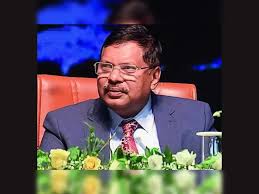In a moment steeped in both history and symbolism, Justice Bhushan Ramkrishna Gavai continues to make a significant mark as the 52nd Chief Justice of India. Appointed on May 14, 2025, Gavai is only the second Dalit in Indian history to hold the nation’s highest judicial office—a role that transcends symbolism and reinforces the constitutional ideal of equality.
Born into a Dalit Buddhist family, Justice Gavai’s early life was shaped by adversity. Raised by a teacher mother and an Ambedkarite father, he studied in classrooms devoid of basic infrastructure like benches or desks. Yet, these modest beginnings would form the foundation for a remarkable judicial career, culminating in leadership at the Supreme Court.
Landmark Judgments with National Impact
Justice Gavai’s tenure has already been marked by rulings that have reshaped India’s legal and political discourse. Most notably, he:
- Struck down the Electoral Bonds Scheme, reinforcing electoral transparency and accountability, and
- Upheld the abrogation of Article 370, affirming the constitutional validity of the revocation of Jammu and Kashmir’s special status.
Legal scholars and political analysts describe his judicial reasoning as a rare blend of constitutional rigor and deep-rooted empathy, with clear respect for both democratic values and marginalized voices.
More Than a Milestone: A Message
Justice Gavai’s appointment is more than a personal achievement—it’s a powerful message about representation in India’s judiciary. In a system long criticized for its lack of social diversity, his rise to the top reflects incremental yet meaningful progress.
As the Chief Justice, he embodies the principles of inclusivity, meritocracy, and constitutional justice—a guardian shaped not by privilege, but by perseverance


